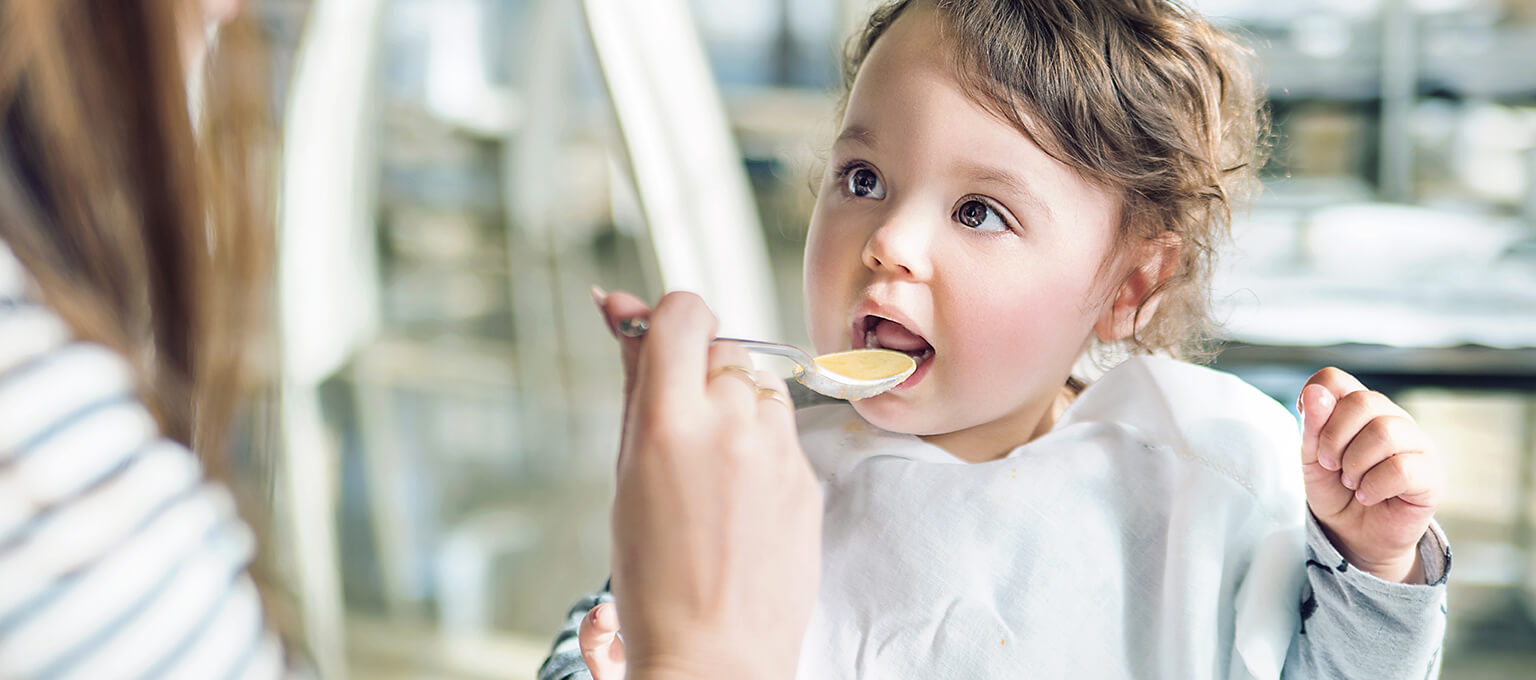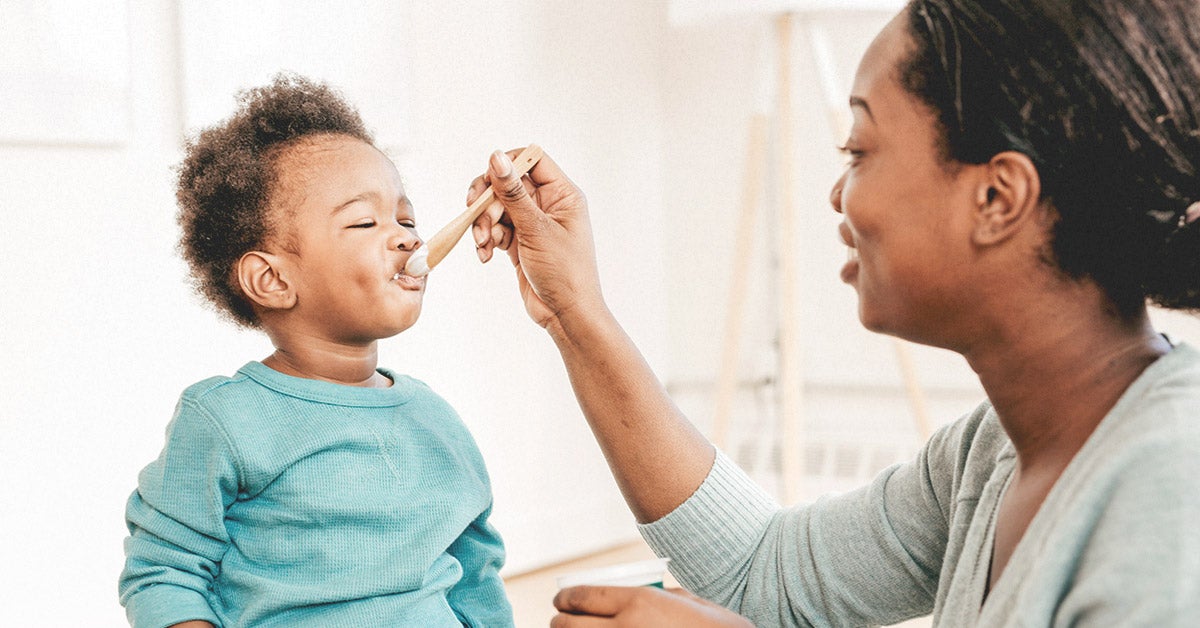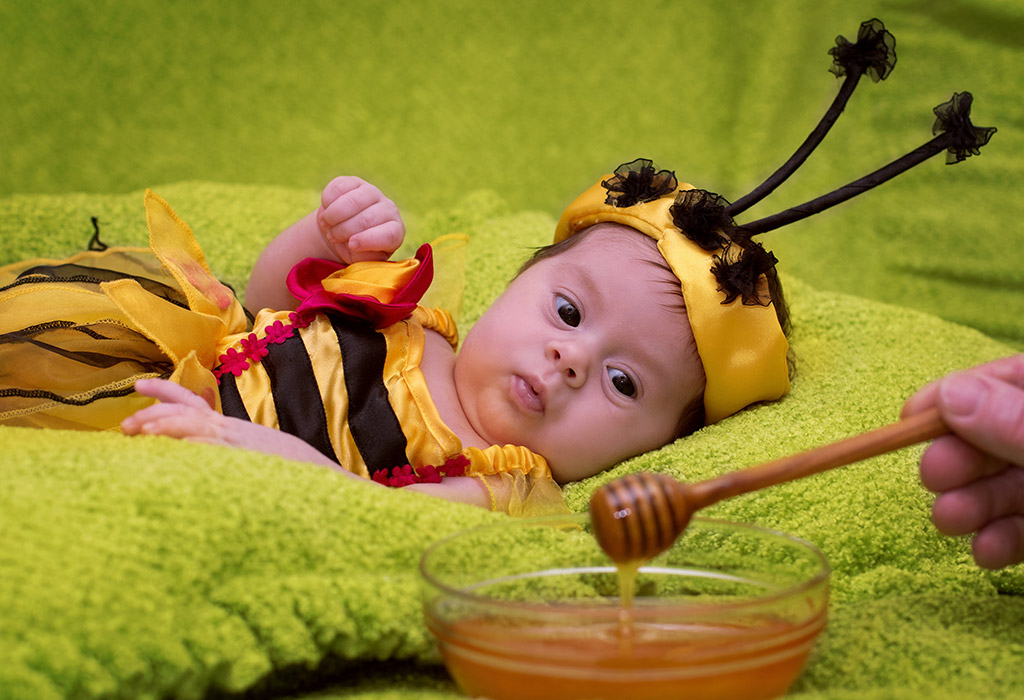When ingested by an infant, the spores grow and the clostridium botulinum bacteria can release the toxin that causes botulism. Although honey is a delicious natural sweeter, it should not be fed to infants under one year of age because of the risk of infant botulism.

Lizzie Oconnor Ms Rd On Instagram A Baby Younger Than One Can Get Botulism By Eating Clostridium Botulinum Spore Honey Clostridium Botulinum Before Baby
At that point, their digestive systems have matured and developed enough for.

Why can't you feed your baby honey. The problem with feeding honey to babies stems from their developing microbiome —the array of microorganisms, such as bacteria and archaea, that live inside and on humans and that assist in the regulation of diet and affect many bodily functions. Additional reasons to why honey should not be given to babies. Another reason not to add honey or sugar to your baby's foods and drinks is because they can be damaging to his emerging teeth.
This is because raw honey may contain botulinum toxin. The toxin (that is produced in anaerobic conditions) can only be destroyed by boiling. Even a tiny amount of honey can be dangerous, which is why doctors warn parents not to give their infants any honey at all until they're at least 12 months old.
After one year old, the child’s immunity defenses are more effective and allow them to eliminate the spores naturally. Clostridium bacteria that cause infant botulism usually thrive in soil and dust. A baby can get botulism by eating clostridium botulinum spores found in soil, honey, and honey products.
Honey can contain spores of a bacterium called clostridium botulinum, which can germinate in a baby's immature digestive system and cause infant botulism, a rare but potentially fatal illness. But for older kids and adults, people with mature digestive systems, the bacteria harmlessly passes through the. Yes, babies younger than 1 year old should not be given honey.
For a child under 12 months of age, there is a risk of botulism from eating honey and it should be avoided. Although honey seems like a wholesome and natural food to give your infant, don't do it until after she's at least 12 months old. However, children 2 years and older develop helpful bacteria in their intestines, which act as a defense against the harmful spores that can cause infant botulism.
The danger in feeding honey to bees is that honey can contain and preserve viruses, spores, and bacteria. Infant botulism is caused when a baby ingests spores from a bacterium called clostridium botulinum. Why can’t babies have honey?
It’s because of botulism—an illness caused by bacteria—that puts your baby’s digestive system at risk. Their digestive systems are simply too young to fight off the toxins. But why shouldn’t babies eat honey?
Known for thriving in dust and soil, clostridium has the power to contaminate honey. They may also encourage a sweet tooth. Raw honey is unsafe because it contains clostridium botulinum, a bacteria that’s actually found in soil.
Even though honey has a number of incredible medicinal qualities, the centers for disease control, the american association of pediatrics, and the national honey board recommend against feeding any kind of honey to infants below the age of one. For the same reason that you never give raw honey to babies, you don’t give raw honey from unknown sources to bees. If a child eats honey contaminated by spores of bacteria which cause this illness, this bacteria can develop in the intestine where a toxin is produced that leads to the symptoms cited above.
Phone your doctor straight away if your baby has eaten honey and then has the following: If you suspect your baby might have infant botulism, seek. The earlier you introduce added sugars (such as honey), the more likely your.
These spores turn into bacteria in the bowels and produce harmful neurotoxins in the body. Raw honey dangers for infants: The botulism spores can only be killed by the high heat which can be obtained in a pressure canner.
To help prevent infant botulism, avoid giving your baby both homemade or processed foods containing honey. In the united states, most honey products are labeled to indicate this, although the reason why is not spelled out, which confuses some consumers. The main reason honey can be dangerous for babies is because of a certain type of bacteria, clostridium, that has potential to lurk inside.
1 the spores of the clostridium botulinum bacteria can be found in honey. The biggest threat is introducing american foul brood (afb), the spores of which can be transferred from colony to colony. Babies under 12 months should not be given honey, because honey contains bacteria that an infant’s developing digestive system can’t handle.
The babies immune system will only be as adequate as the mother’s is if that delivery is normal. So technically, honey is not safe for infants even in cooked form such as in baked foods like breads. Eating honey can cause your baby to become ill with a condition called infant botulism.
Avoid giving raw honey — even a tiny taste — to babies under age 1. These spores are usually harmless to adults and children. Botulism is the only thing that they can point.
Other reasons not to add honey to your baby’s food and drink include. This also applies to honey on soothers. You should also avoid giving your baby any processed foods that are made with honey, such as.
The reason to delay honey is not because of a concern over food allergies or choking hazards, but of a serious disease called infant botulism. You should not give infants and children under 1 year of age honey, or baby cereals containing honey, because of the danger of infant botulism. It is unethical to do studies on babies and so there is little in the way of this information.
Botulinum bacteria , which can produce a toxin in a baby's large intestine, leading to a rare but serious. Can my baby eat baked goods with honey? When they’re introducing food, why can’t babies have honey?
Babies under one year should never eat honey. Constipation is often the first sign of infant botulism, typically accompanied by floppy movements, weakness, and difficulty sucking or feeding. If you would like to add more flavour to your baby's food, such as to.

Starter Guide To Baby Food Nutrition Baby Food Nutrition Baby Food Recipes Nutrition Infographic

When Can Babies Have Honey Pampers

Why Cant You Give Cough Medicine To A Young Child Milk And Hugs Cough Medicine Kids Health Childrens Health

Youve Heard Its Dangerous To Give Your Baby Honey Heres Why Cooking Sweet Potatoes Honey Baby Food Recipes

Starting Solids For Babies Starting Solids Baby Baby Solid Food Solids For Baby

Pin On Awesome Infographs

Video Pin Oleh L A A Di -tiktok Di 2021 Kata-kata Ungkapan Romantis Buku

Why Cant Babies Eat Honey Or Can They Lets See Baby Eating Honey For Babies Diy Natural Products

When Can Babies Eat Honey Risks Benefits And Tips

Pin By Peyton Roberts On Baby Led Weaning-starting At 6 Months Baby Led Weaning Baby Led Weaning First Foods Baby First Foods

Pin On Pregnancy Breastfeeding Baby Life

Is It Safe To Give Honey For Babies Honey For Babies Baby Care Tips Baby Wish List

Foods To Avoid For Babies Under 1 Baby Food Recipes Foods To Avoid Kids Nutrition

Allergy-friendly Toast Ideas Food Allergies Healthy Baby Food Toast Toppings

Pin On How Healthy Are Our Foods

Introducing Solids- A Month By Month Schedule Free Printable Baby Food Recipes Baby Fruit Baby Feeding

Pin On Animales Amigurumi Patrones Amigurumi Gratis

Vivien Writing Poems Poetry Inspiration Pretty Words

Honey For Infants- When To Introduce Benefits Risks